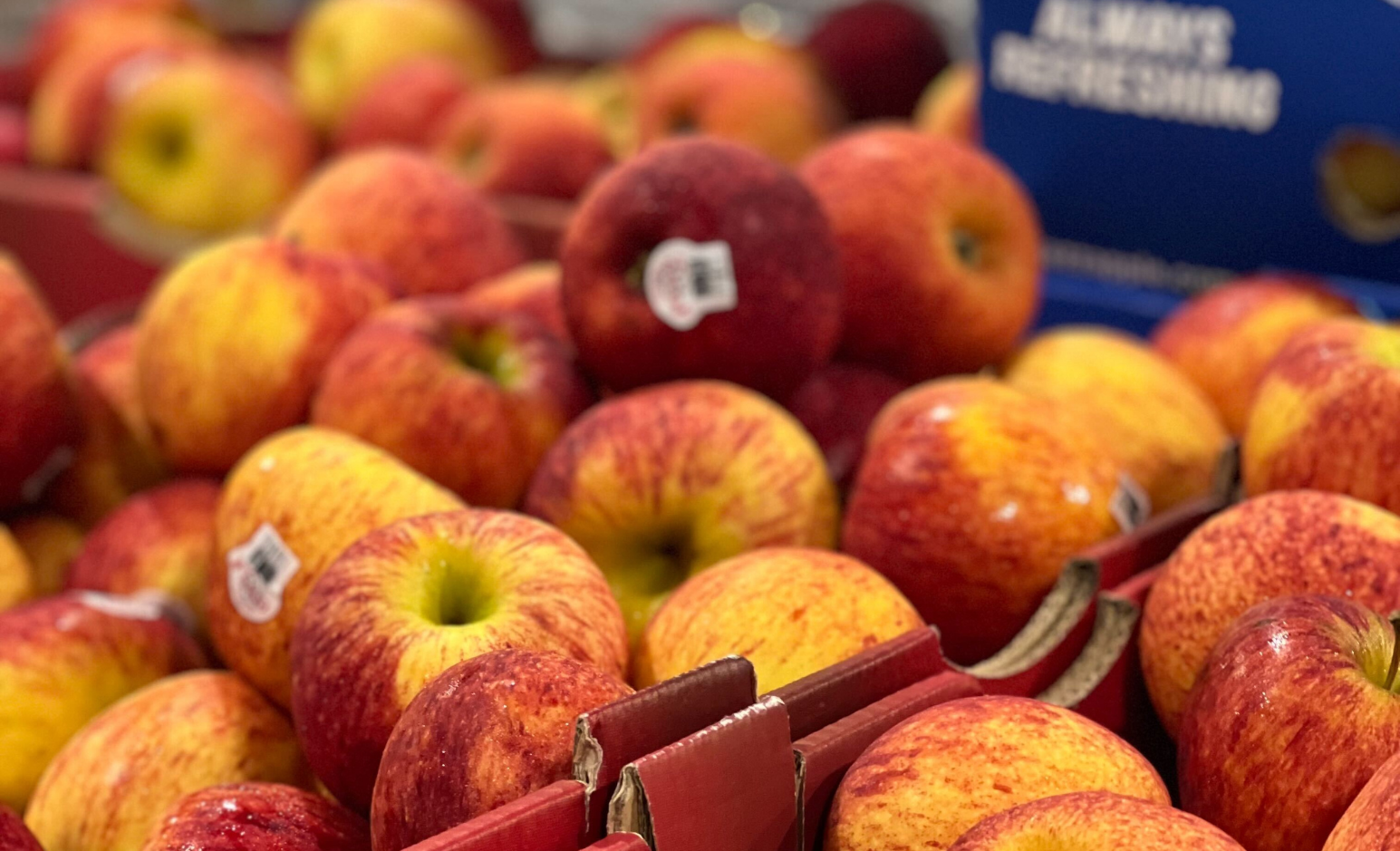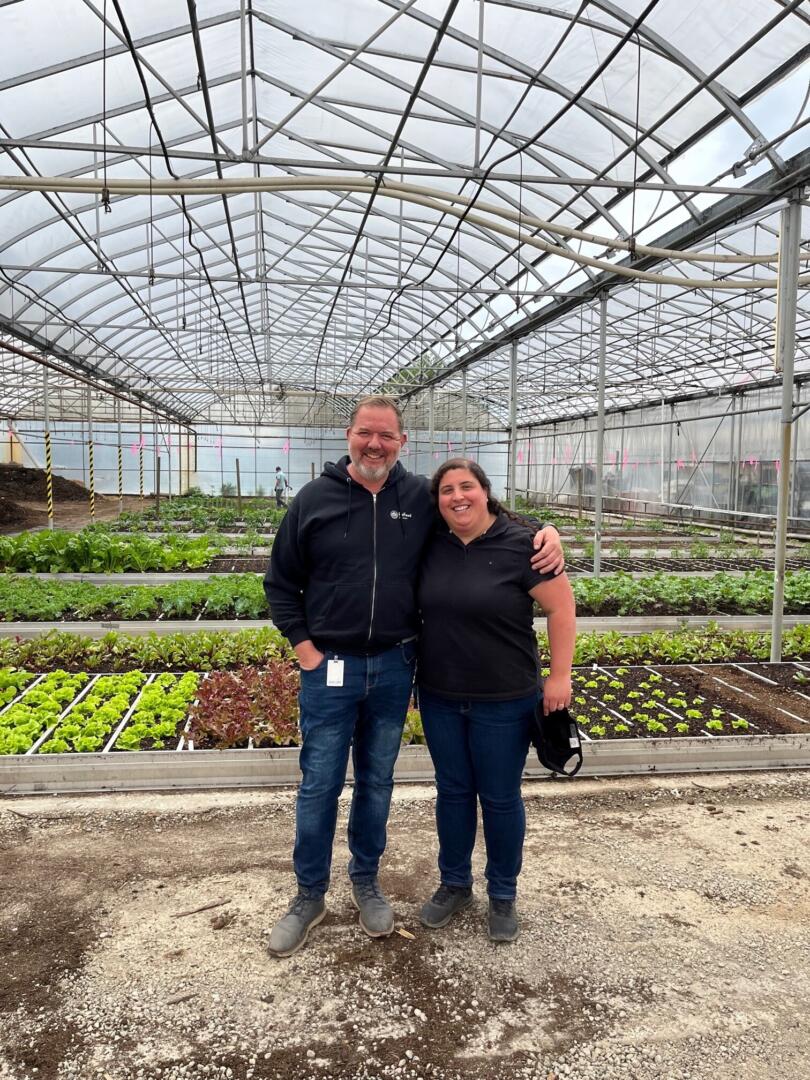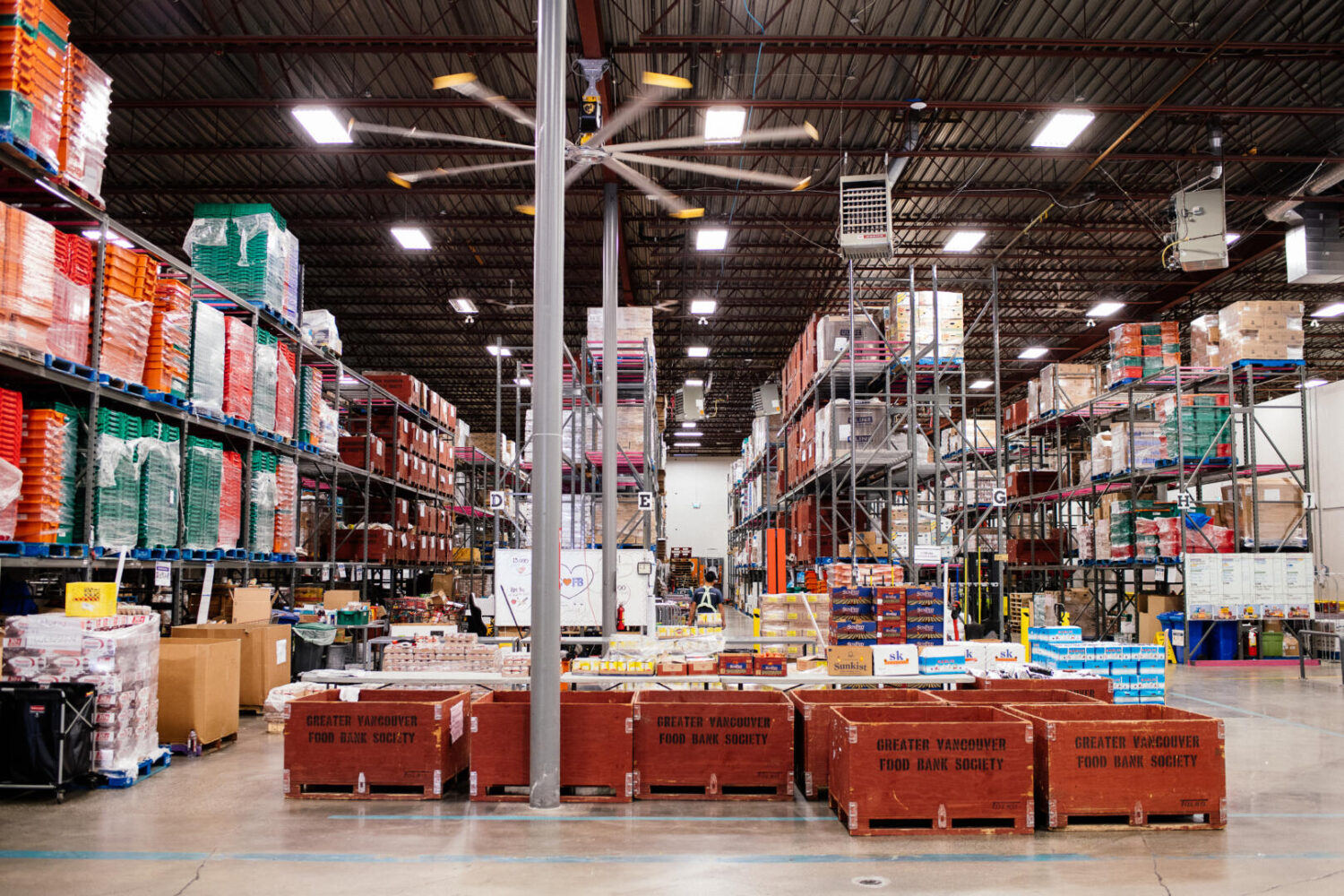Chris Campbell / Burnaby Now
OCTOBER 4, 2019 06:02 AM
David Long is walking through a warehouse in Burnaby when he suddenly stops and stares down a long row of white walls.
“This is my favourite place,” says Long, the CEO of the Greater Vancouver Food Bank, which just opened its new warehouse on Winston Street. “I call this refrigeration alley.”
You’ll likely never find anyone who gets as excited about refrigeration as Long, but it’s easy to see why.
The food bank used to operate out of a facility in East Vancouver that was woefully short on refrigeration space to keep perishables cold or frozen. The Burnaby facility has solved this issue, giving the food bank a 266-per-cent increase in refrigeration capacity and 816-per-cent increase in freezing capacity. A government grant allowed the food bank to install industrial-level refrigeration units.
This gives the food bank a lot of flexibility with its food, Long told the NOW during a tour of the facility on Thursday.
Long loves this area so much he secured a donation to cover the cost of a “Refrigeration Alley” mural that has been painted on a wall next to the freezer.
Being able to store food longer means the food bank wastes less product and feeds more people. And the food bank needs to be able to increase its capabilities to meet skyrocketing demand for its services.
Long says the food bank has seen a 24-per-cent increase in clients needing food support in roughly the past year. The main culprit, Long says, is the housing crisis. Some of the food bank’s clients are working families who have to pour too much of their monthly income into rent, leaving not much left over for other essentials, such as food. Other clients are women with children who have left abusive relationships, Long said.
The recent spike in gas prices meant pushing more people to use the food bank, Long said. When you live on the edge of poverty, it doesn’t take much to push a family to seek out food support.
The food bank feeds roughly 28,000 people spread across Burnaby, Vancouver, New Westminster and the North Shore, Long said. About 8,000 to 9,000 of those clients are supplied though 13 hubs in these communities, Long said, with others serviced by 75 partner agencies.
The warehouse runs on a mix of staff and volunteers. More than 80,000 volunteer hours are logged annually doing such things as sorting and assembling food packages. There are weekly menus in which food bank staff design balanced meals based on the food on hand, which ranges from canned goods to fresh items such as bread, milk, fruits and vegetables.
Long said there are a lot of myths surrounding the food bank, especially when it comes to the food supplied.
“Some people still have this outdated view of the food banks of 20 years ago, with people getting a bag of Kraft Dinner,” he says.
The food bank spends about $1.4 million annually to buy food, Long said, adding that they have a lot of “purchasing power” when it comes to what they buy. For example, Long shows off crates of beautiful, fresh apples from a farm in the Okanagan that grows and sells them to the food bank at a hefty discount.
The food bank, however, is still heavily reliant on donations from the public for much of the food it supplies to clients, Long said. The food bank staff work closely with the business community to develop partnerships. For instance, Long pulls out of a freezer some frozen lasagnas that have been donated by Costco.
The new Burnaby facility has allowed the food bank to expand and add services, such as banks of computers clients can use for such things as job searches.
Then there is the new teaching kitchen. It’s like something out of Chopped and is used to teach clients how to cook healthy meals. It’s also used by groups of corporate volunteers who want to have a team meal after spending hours in the warehouse.
The move into the Burnaby was a feat in itself, as everything had to be transported and set up without missing any deliveries for the food bank’s thousands of clients.
Now settled, Long said the food bank is trying to publicize its efforts and raise awareness about how people can support the organization.
“I look at this as a fresh start for us,” Long said.




